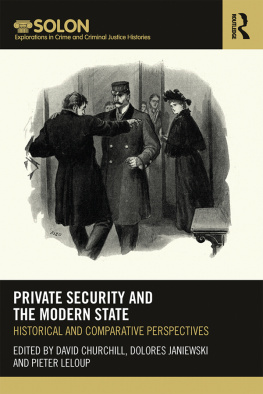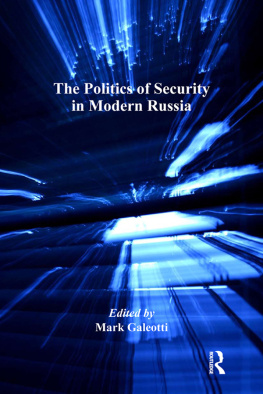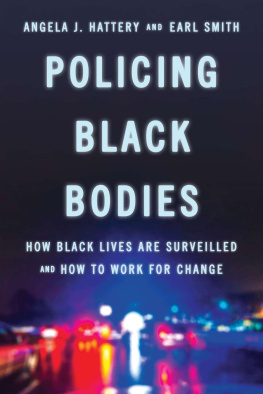Mark Neocleous - The Politics of Immunity: Security and the Policing of Bodies
Here you can read online Mark Neocleous - The Politics of Immunity: Security and the Policing of Bodies full text of the book (entire story) in english for free. Download pdf and epub, get meaning, cover and reviews about this ebook. publisher: Verso, genre: Politics. Description of the work, (preface) as well as reviews are available. Best literature library LitArk.com created for fans of good reading and offers a wide selection of genres:
Romance novel
Science fiction
Adventure
Detective
Science
History
Home and family
Prose
Art
Politics
Computer
Non-fiction
Religion
Business
Children
Humor
Choose a favorite category and find really read worthwhile books. Enjoy immersion in the world of imagination, feel the emotions of the characters or learn something new for yourself, make an fascinating discovery.
- Book:The Politics of Immunity: Security and the Policing of Bodies
- Author:
- Publisher:Verso
- Genre:
- Rating:4 / 5
- Favourites:Add to favourites
- Your mark:
- 80
- 1
- 2
- 3
- 4
- 5
The Politics of Immunity: Security and the Policing of Bodies: summary, description and annotation
We offer to read an annotation, description, summary or preface (depends on what the author of the book "The Politics of Immunity: Security and the Policing of Bodies" wrote himself). If you haven't found the necessary information about the book — write in the comments, we will try to find it.
Mark Neocleous: author's other books
Who wrote The Politics of Immunity: Security and the Policing of Bodies? Find out the surname, the name of the author of the book and a list of all author's works by series.
The Politics of Immunity: Security and the Policing of Bodies — read online for free the complete book (whole text) full work
Below is the text of the book, divided by pages. System saving the place of the last page read, allows you to conveniently read the book "The Politics of Immunity: Security and the Policing of Bodies" online for free, without having to search again every time where you left off. Put a bookmark, and you can go to the page where you finished reading at any time.
Font size:
Interval:
Bookmark:

The Politics of Immunity
The Politics of Immunity
Security and the Policing of Bodies
Mark Neocleous

First published by Verso 2022
Mark Neocleous 2022
All rights reserved
The moral rights of the author have been asserted
1 3 5 7 9 10 8 6 4 2
Verso
UK: 6 Meard Street, London W1F 0EG
US: 20 Jay Street, Suite 1010, Brooklyn, NY 11201
versobooks.com
Verso is the imprint of New Left Books
ISBN-13: 978-1-83976-483-7
ISBN-13: 978-1-83976-486-8 (US EBK)
ISBN-13: 978-1-83976-485-1 (UK EBK)
British Library Cataloguing in Publication Data
A catalogue record for this book is available from the British Library
Library of Congress Cataloging-in-Publication Data
A catalog record for this book is available from the Library of Congress
Typeset in Minion by Hewer Text UK Ltd, Edinburgh
Printed and bound by CPI Group (UK) Ltd, Croydon, CR0 4YY
We know the system doesnt work because were living in its ruins.
Leaders, poem in The Seed (1967)
Contents
For listening to me wonder aloud and ad nauseam about bodies, selves, and systems, and their movement towards death and destruction, as well as for being there through mourning and melancholia, I am grateful to Debbie Broadhurst and Lola Broadhurst.
For offering me information, links, thoughts, and provocations, I am grateful to Andrea Bardin, Travis Linnemann, Brendan McQuade, Andrea Miller, Colin Perrin, Guillermina Seri, Deniz Trker, Manuela Trindade Viana, and Tyler Wall.
For providing me with a whole gamut of other things, I am grateful to Poli Neocleous (20012018), Sheila Neocleous (19362018), and Renos Neocleous (19352019). Their life death, to use a term explained below, undergirds this book in ways that will not be understood by the reader, since they are not yet understood by the author.
Though I have spent my working life almost wholly at the bench, immunology has always seemed to me more a problem in philosophy than a practical science.
Sir Frank Macfarlane Burnet,
The Darwinian Approach to Immunity (1965)
In an age of HIV/AIDS, virulent viruses such as Ebola, common colds, influenza that kills thousands every year, antibiotic-resistant bacteria, parasites that deplete the body, and, most recently, the shock to our bodies and minds produced by Covid, we dream a dream of immunity.
In an age when we are told that washing our hands will save the life of the state as well as the lives of people, that immune systems of individual bodies hold the key to the security of the body politic, that viruses pose a threat to national security, and that the future of global capitalism depends on fighting wars against viruses through police measures such as quarantine, lockdown, border closures, immunity passports, and immune surveillance systems, the dream we dream of immunity turns out to be decidedly political.
This is a book about the politics of immunity. It is a book about the ways in which immunity permeates how we think about the body and the body politic. It is a book about cells, selves, systems, and sovereignty.
Immunity has a rather odd history. In its ancient origins, one finds nothing remotely biological. In Roman law, immunity conferred We shall have cause to discuss this assimilation at various points in this book, as we take up the complicated conceptual history of immunity and its various political uses; in chapter 6 in particular we take up some of the shifts in the concept of immunity that take place between the Roman usage and the adoption of the idea by biology in the nineteenth century. Here, we can note that the strangeness of biologys adoption of a legal term is compounded by three further issues.
First, there is the fact that being transported into the world of biology did not mean that immunity gave up its foothold in the legal and political world. In fact, the law sought to retain custody of the concept, or at least one meaning of the concept, finding in immunity a perfect foil for sovereign violence. Such violence will be a key theme in this book. For Here we find a lawyer discussing a term from legal history, using the language of a newly emerging biological discourse surrounding that same term, to explain an aspect of legal history. By the end of the nineteenth century, then, as the biology surrounding immunity began to be more widely understood, ideas about immunity started oscillating back and forth between the legal and biological worlds. The third issue compounding immunitys strangeness is that the biological notion of immunity has itself been reinterpreted in all sorts of political ways. Our nation has been put on notice: we are not immune from attack. This comment from a presidential authority could be from early 2020 when it became clear that Covid-19 was spreading across the globe. In fact, the comment is from 20 September 2001, to justify the creation of a new Office of Homeland Security to defend the American body politic from the virus of terrorism said to be spreading across the globe.
A book on the politics of immunity, then, is a book on a concept that spent two millennia being used by jurists and political theorists to understand the sovereign grant of privilege or exemption, which was then being picked up by biologists in the late nineteenth century to capture something about organismic survival, and which then spent the following 150 years tacking back and forth between biology and law. This tacking back and forth between biology and law was decidedly political, and remains so. The more immunity tacked back and forth, so the more political uses to which it was put, so the more it came to occupy a significant space in our cultural and intellectual worlds. We encounter lines such as How to Build a Corporate Immune System for the Crisis run by major international organizations (that one from the European Commissions Microfinance Centre in April 2020) and are expected to simply treat the idea as entirely unproblematic. A corporate immune system? Well, if the corporation is a body, which it is (a corpus), then why not?
Commenting on immunitys iconic status, Donna Haraway highlights the ways in which immunity moves easily across an incredibly diverse range of practices and powers. Immunity touches on and appears in
global and local politics; Nobel Prize-winning research; heteroglossic cultural productions, from popular dietary practices, feminist science fiction, religious imagery, and childrens games, to photographic techniques and military strategic theory; clinical medical practice; venture capital investment strategies; world-changing developments in business and technology; and the deepest personal and collective experiences of embodiment [and] vulnerability.
Immunitys iconic status enables it to generate a rich assortment of tropes, images, and assumptions that underpin the concepts vibrancy and political complexity and which will run through this book: Self and non-Self, friend and enemy, identity and foreignness, body and machine, recognition and toleration, system and survival, defence and destruction, war and protection, nature and nation, inoculation and incorporation. The popularity of even the most simplistic of views about immunity bears witness to a profound resonance between ideas that dominate This book aims to show how it is also a question of politics.
Biological categories often perform crucial ideological functions, and what appears as an objective category about natural processes often turns out to be a political claim about the social world. Nowhere is this clearer than in the concepts used to describe the body. But the image of the body is in turn always already inscribed in the image of the body politic. The idea of the body politic goes back to the ancient world, being found in the work of both Plato and Aristotle. It was heavily pursued in early modern political texts such as John of Salisburys
Next pageFont size:
Interval:
Bookmark:
Similar books «The Politics of Immunity: Security and the Policing of Bodies»
Look at similar books to The Politics of Immunity: Security and the Policing of Bodies. We have selected literature similar in name and meaning in the hope of providing readers with more options to find new, interesting, not yet read works.
Discussion, reviews of the book The Politics of Immunity: Security and the Policing of Bodies and just readers' own opinions. Leave your comments, write what you think about the work, its meaning or the main characters. Specify what exactly you liked and what you didn't like, and why you think so.







